A minority of racists among Conservative grassroots members could stop Rishi Sunak from becoming the first non-white prime minister.
That is the concern among some south Asian Tories who have spoken to Eastern Eye.
They are concerned that Britain is “not ready to take orders from a brown boy”.
They are urging their party to choose the next prime minister based on their policies rather than their race.
“There are always a 10 to 15 per cent in society who aren’t ready to be led by someone who is black or brown,” said one Asian Tory parliamentarian.
“That proportion is what we would call racist in any other context.
“The party reflects society, and so they will be members who could decide the fate of our country.”
The party, once dubbed “the nasty party” by former prime minister, Theresa May, has worked hard to attract people of colour.
It has elected two female leaders and is the closest among mainstream political parties to put a south Asian at its helm.
But that does not mean the party is free from problems concerning race, said one source.
“If you look at Rishi’s credentials, head boy at Winchester, Oxford and then Stanford, he’s the archetypal establishment figure.
“But he faces the problem of having to appeal to a minority electorate who still mistrust him on issues such as immigration.
“Many members want somebody who's not going to be soft on immigration, and Rishi is probably having to overcompensate just to prove he can be trusted.”
Challenges
Boris Johnson's various cabinets, described as the most racially diverse in UK political history, and the leadership election among MPs showed how colour appeared to no longer matter.
Even so, Westminster sources said the Tories still had some way to go.
“One of the challenges that there has been in politics, and it is a huge problem for the Conservative Party, is how do you accept people of colour, from different communities, as being representative of them,” said another senior Asian insider.
“It's about accepting the individual from a different community and accepting that you can take orders from brown and black people.
“So, that remains a challenge.”
In the past Baroness Sayeeda Warsi accused her party of Islamophobia.

That led to former health secretary, Sajid Javid, during the 2019 leadership battle, getting a commitment from the party to investigate the allegations.
An enquiry by Professor Swaran Singh last year, found "anti-Muslim sentiment remains a problem within the party".

But the former equality and human rights commissioner concluded there was "no evidence" of institutional racism – something Warsi has never accepted.
“We have come a long way, and this proved that the party is not institutionally racist,” said one Asian Tory Westminster source.
“Every party has problems. Look at Labour and anti-Semitism. We need to move on, otherwise Asians will always be seen as blaming race when they don’t get their way.”
Racism in government?
She remains the party’s first Muslim female MP and minister.
Speaking to Eastern Eye, Ghani said she got chosen in one of the whitest constituencies, Wealden in east Sussex, because she was “a campaigner” and “they [the selection committee] didn't want a professional politician”.
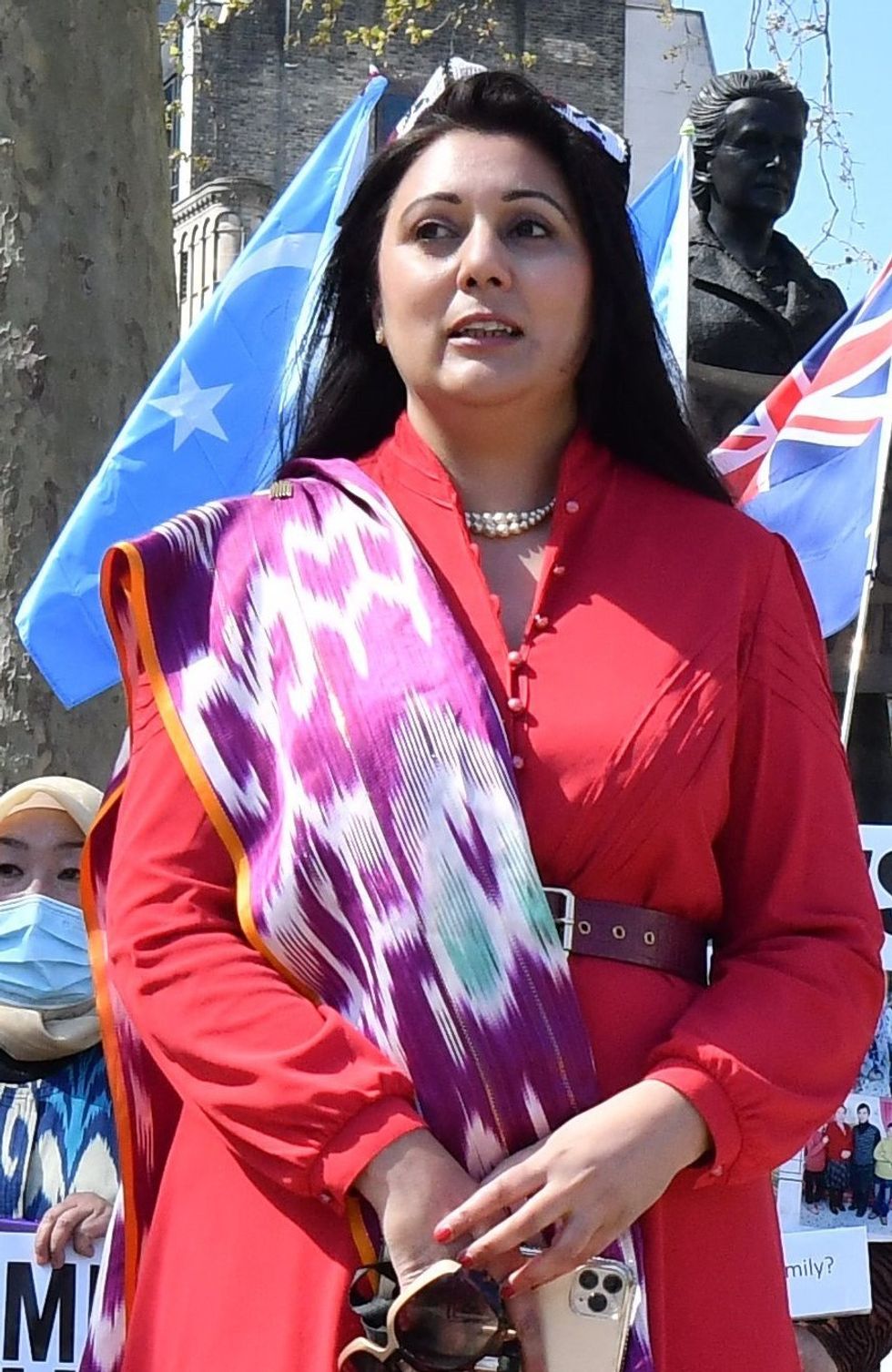
She revealed that a couple of members resigned when they realised she was a Muslim.
But the MP stressed that she felt incredibly supported by her constituency party and her “fantastic association chair, Daphne”.
“What I can tell you is that any feedback that I'm getting from members is fundamentally on policy, where people stand on the economy and what they think each of the people are going to bring,” said Ghani.
“That's the reality of Conservative politics because it is always much more about the ideology of the individual.
“It can't be racist because we’ve had candidates for the leadership election of all colours.
“We've had Nadhim [Zahawi], Kwasi [Kwarteng, we've had Rishi, and we've had Kemi [Badenoch].
“The question isn't about the Conservative Party, the question will be about the Labour Party, and what stops people from different backgrounds coming forward.”
Hurdles
But that is not what some close to grassroots are telling us.
“If you speak to Asian candidates who go for selection to stand as MPs, they face bigger hurdles than white candidates,” one party member said.
“What they want is someone who looks and sounds like their previous MP.
“If they’re white, you don’t stand a chance.
“In the feedback they tell you how close it was and how well you did, but there’s always an excuse, which isn’t always believable, but you accept it because you don’t want to rock the boat or harm your chances next time.”
Parliamentary and grassroots members have repeatedly told Eastern Eye that things have improved, and that the problem is because the party recruits from society, a fraction of whom have racist views.
This is borne out in a recent survey by the think tank, British Future.
It asked whether Britain was right to accept 30,000 Ugandan Asians expelled by dictator, Idi Amin, 50 years ago.
Despite the economic and cultural contribution to UK life, 13 per cent said it was a wrong decision.
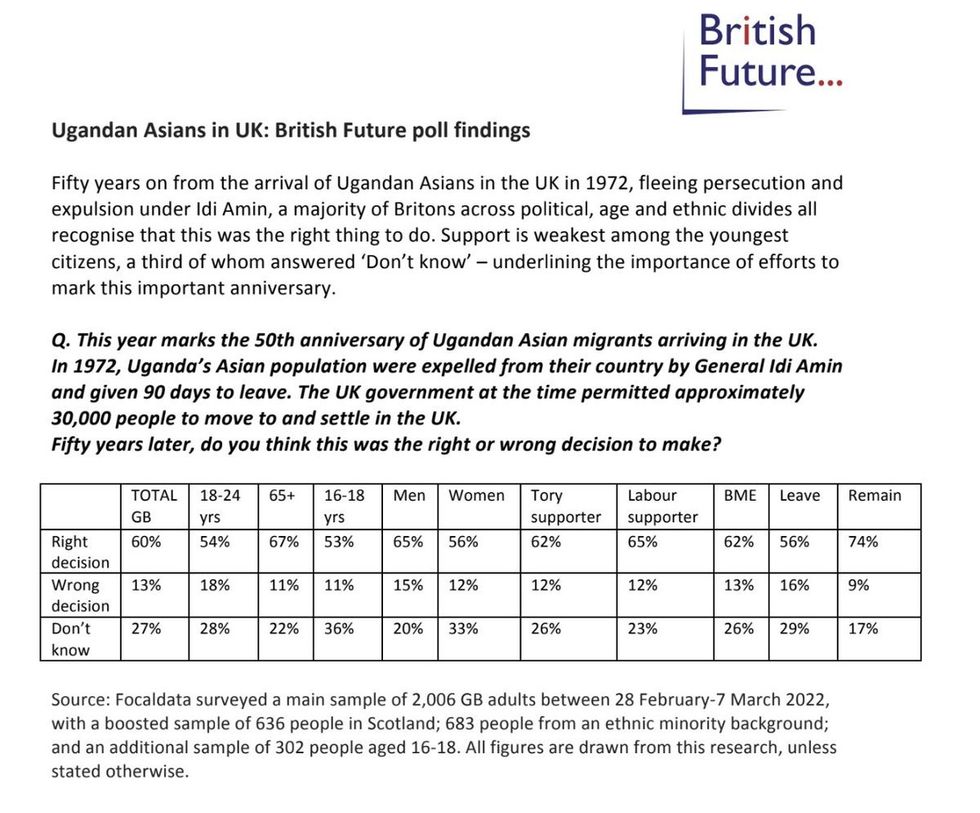
“What the survey shows is that a quarter of people in this country broadly, their position is kind of shut the borders or have as little immigration as possible,” said its director, Sunder Katwala.
“There's a hard core quite happy to be overtly racist, which used to be more like 10 per cent, is probably five to 10 per cent.
“There are people who don't feel the need not to adopt to the norms of society now, and that 13 per cent fits with that.
“So, while some people might be inclined to go with the norm, other people might be sticking two fingers up and say, ‘I know what you want.’
“‘I know what you think the answer is, but I'm really grumpy, I'm really unhappy, give me my country back’, which would have still had quite a lot of support the 80s and 90s and is the fringe now.”
Whiter-than-white
One of the biggest criticisms is that Sunak has had to prove his Tory credentials by moving to the right, said some insiders.
“Look at the way he’s had to make fun of his skin colour by saying how people have complimented him about his tan,” said one source who felt let down by Sunak.
“He’s had to move to the right and join in with others who see questioning of Tory beliefs as an attack by the left and the ‘woke culture’.
“And Rishi’s definitely had to prove he won’t let thousands of immigrants into Britain.
“That shift to the right isn’t him, but he’s saying it because that’s what the party faithful expect and want.”
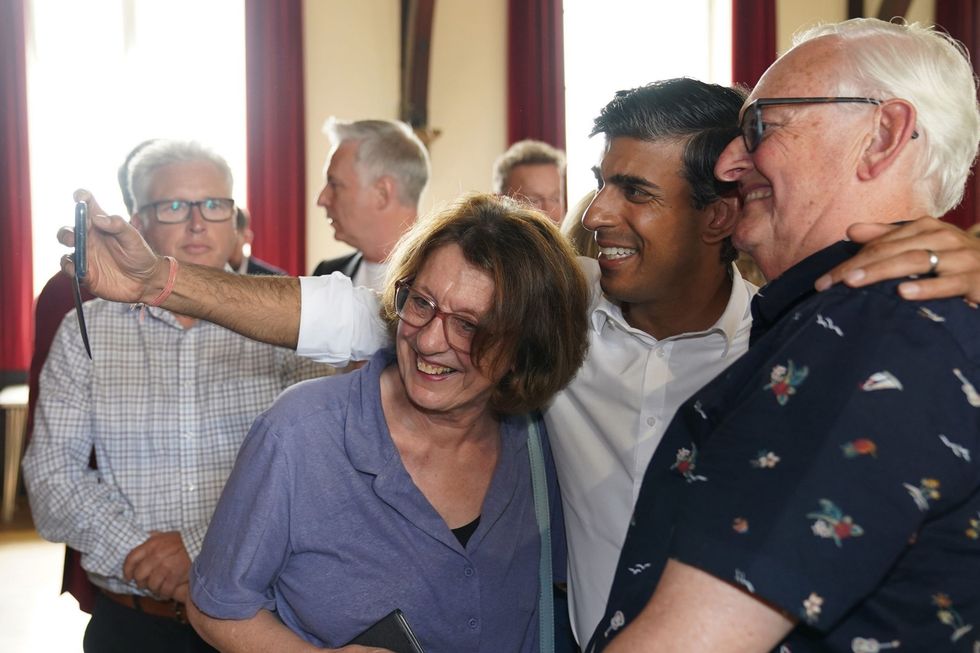
Another source said it was because, even in modern Britain, people of colour had to be “whiter-than-white”.
“This is about not scaring people inside the party,” said one parliamentarian.
“The problem with us Asians is that once we get into a place, whether it’s a party or institution, our survival mechanism kicks in.
“We know that to be accepted we have to prove we’re tougher on crime, more Conservative on immigration, and we simply cannot afford to be different.
“We’re judged the moment we’re seen, and our skin colour means we have to prove ourselves over and over again, and we can’t put a foot wrong.
“We’re held to a higher standard because if we do something wrong, it’s because we’re brown.
“In dark corners we may admit to ourselves that we’ve had to change, betray our core beliefs, to survive and progress, but we’ll never admit it to anyone, and never in public.”
Fatal error
This did not surprise award-winning pioneer, author, journalist and columnist for the i-newspaper, Yasmin Alibhai-Brown.
She said, “He [Sunak] is absolutely pandering to the right, the more extreme things he's saying are appalling.
“He's saying he’d like to send people like me to Prevent [government programme to tackle radicalisation] so we don’t criticise this country. That’s so extreme.

“The thing that I worry about is when he says ‘I diverted money away from the urban deprived centres’.
“He has never known poverty, his heart is always going to be with the privileged, and I find that very problematic.
“I think race is playing a part in this.
“He may not want to believe it, but many posh Asian people think that once they've crossed a certain border of wealth, that race doesn't matter.
“Well, race always matters.
“Look how they're treated. Meghan Markel, for God's sake.
“I think he still believes really strongly that I, Rishi Sunak, am not seen as a brown man, and that's fatal.”
The Conservative Party does not publish how many members it has.
Political experts put the figure at 160,000, and they will decide the fate of the country.
Those who have spoken to us said that things are changing, but not in time for Sunak.
“We have to perform to a higher calling, and we can’t always be our authentic selves,” said one Asian parliamentarian.
“The only way he gets the leadership and becomes prime minister is if Liz [Truss] slips up or continues to make unforced errors.
“She obviously made one last week around regional pay.
“If there is something more that could shift the mood then it could pave the way for Rishi.”
Whatever happens, said the source, if there is no clear winner, then it spells problems for their party over the next two years, ahead of a general election.
“Rishi’s unlikely to romp home, it’s more likely 51 or 52 per cent, if he’s lucky.
“That doesn’t bode well for governing smoothly, not least against the backdrop of the biggest cost-of-living crisis since Gordon Brown’s time as prime minister.
“Whoever wins this has a real poisoned chalice.”
ANALYSIS
“Choose candidate on calibre, not colour”
Contemporary historians accept that relations between the Tories and south Asian communities were dreadful since mass immigration of the early 1960s.
Real change did not come until Michael Howard’s period as leader.
He actively tried to find non-white candidates to join the party and fight elections.
Howard was also instrumental in putting Conservative south Asians in the House of Lords.
In 2004, Lord Rami Ranger co-founded the British Asian Conservative Link with Lord Ranbir Suri.

He told Eastern Eye that he faced immense racism then, but today’s Tory party was different.
Even so, he urged his party colleagues to put “calibre before colour”.
“Racism is everywhere, there is a very old perception of brown people,” said the peer.
“Brown people have proved themselves, they work very hard, and nothing was made easy.
“They demonstrated that you can't keep a good person down, and they're there because they had the ability, determination and commitment to be where they are today.
“It will be wrong to keep on victimising somebody on the basis of their colour, we should prefer calibre to colour.
“Having said that, I still have great faith in the British sense of and fair play.
“I believe people will be able to rise above the minor prejudices and vote for the right person who in the end will bring benefit to the nation, regardless of colour, or caste or religion.
“We should really look at the bigger picture, and that is that brown people are now part of our fabric.”
Cameron’s A-listers
Although the Labour Party has more people of colour on its benches and membership, it is the Conservatives who have promoted them and given them high office and government departments to run.
Political commentators told this newspaper that while David Cameron created the “A-list” of preferred candidates, it was Boris Johnson who reaped the benefits of that strategy.
Before then the Tories did not truly welcome people of colour.
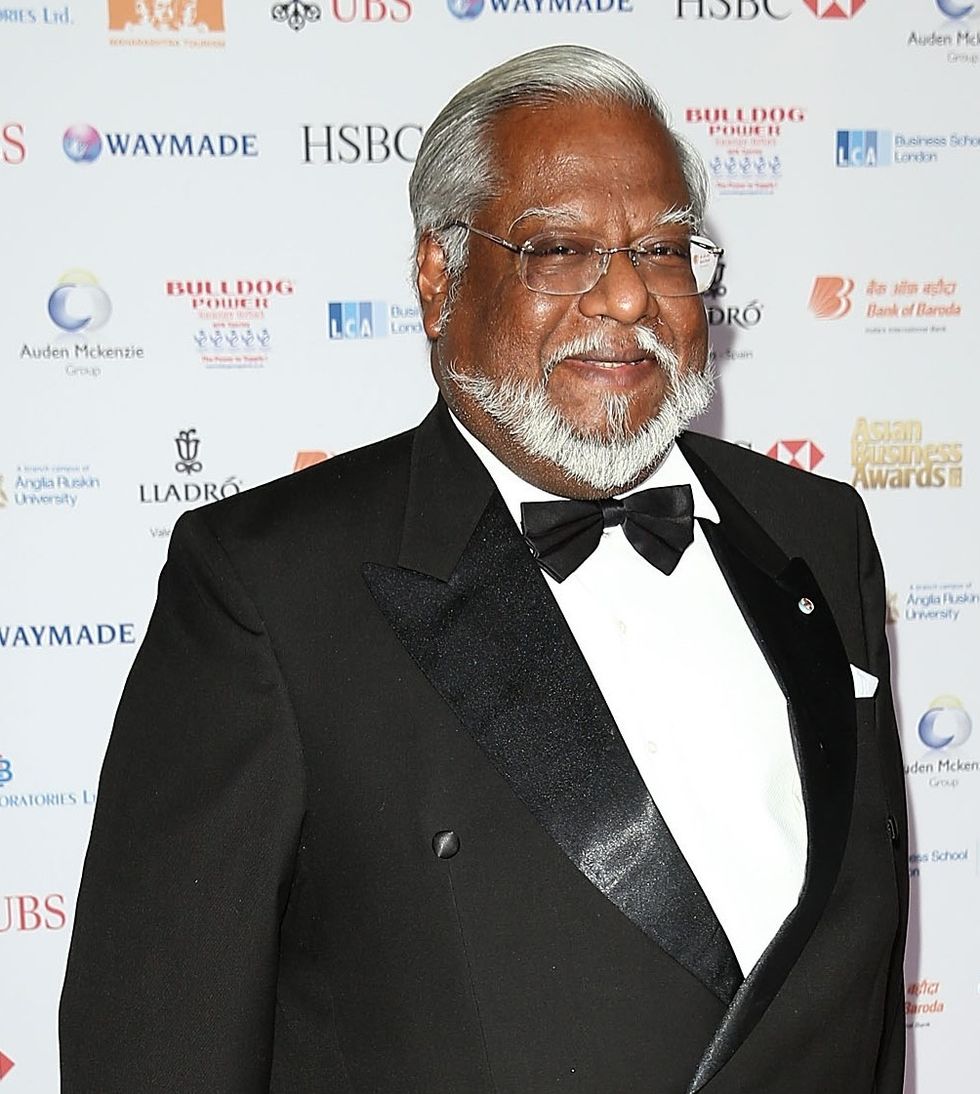
Nirj Deva was the first person of colour post-Second World War to become a Conservative MP – but he had to face more than a hundred selection battles before getting a winnable seat.
“In the end I rang up the chair of the party, and I asked why I wasn’t being shortlisted for interview.
“He asked what I was calling myself, and I said Niranjan Joseph De Silva Deva, my name.
“For God’s sake, he said, call yourself Nigel or Joe Deva.
“Anyway, I arrived at one place for interview, and I knocked on the door, and they asked what I wanted.
“I explained I was there for interview, and they said they were expecting someone Jewish.
“That’s what I had to put up with during 1984 to 1992.”
Deva is clear that what happened to him would not happen in the south-east Tory constituency parties today.
“I don’t know about the rest of England, but I can put my hand on my heart and tell you that that there is not one single racist in the Tory party in the south-east.
“They voted me in four times, and they worked hard to help me get elected.
“They are very open minded, very liberal and every time I ran, the team were great.”
Despite these reassurances, Tory members who have spoken to Eastern Eye said that the party had let Deva down.
“Nirj was a pioneer who did everything which was asked of him in service of his party,” said one.
“So why hasn’t he been elevated to the Lords, while others are there?
“Is it because he has outlived his usefulness?
“They really should recognise what Nirj has done for party and country during his lifetime here.”
That injustice proves how far the party must go to be truly representative.
Modern Tories
It is not just veterans, such as Deva, who may have cause for concern.
Sources have told Eastern Eye about former Johnson colleague, Kulveer Ranger.
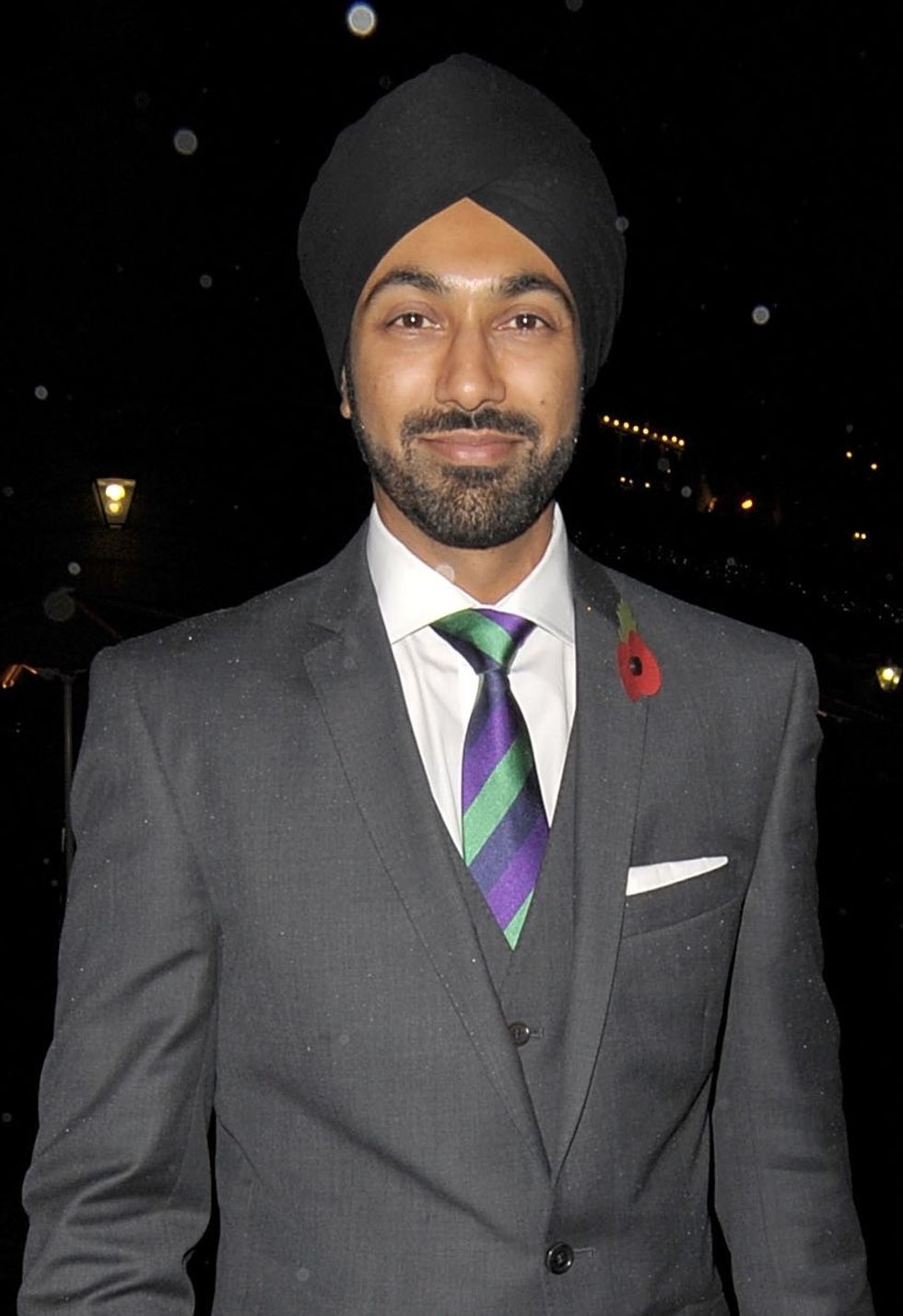
Ranger is credited for introducing the Oyster card system for travel in London as well as making sure bike thefts fell in record amounts and encouraging the uptake of electric cars by introducing charging points, during his time at London’s City Hall.
When Eastern Eye spoke to Ranger, he said the party had changed for the better, but it still had to overcome some challenges.
“I knew that I had a challenge, and I gave a lot of time and effort to trying to become an MP,” he explained.
“I'm not negative about this because I think the party has changed as we've been through this process over all these years.
“No organisation is perfect, and it's up to each one of us to acknowledge that, and hopefully, try to improve it.
“I don't have any regrets about the experiences I had or what I was trying to do because even if I didn't fully succeed, I hope in some way, I succeeded in changing the Conservative Party, through maybe my own efforts.
“Hopefully in some way, we can pave the way for the future, even if it were the first time some associations were seeing a Sikh candidate.”
For the director of think tank British Future, Sunder Katwala, the problem is not at the top of the Conservative Party.
Rather it remains at a local level when candidates are trying to get a seat as an MP or councillor.
“It's perfectly possible for some people to be a bit clumsy, to be overtly prejudiced while that wouldn't be where most of the members are,” he said.
“That means there's a little bit of a hill for a female candidate or an ethnic minority candidate, you’ve got to be better.
“That’s off set by those who think David Cameron was right, that you have to modernise the party.
“There's much more likely to be discrimination against a kind of unknown junior person than there is by the time they get the chance of choosing between a former chancellor and foreign secretary because there's familiarity and status at that level.”
















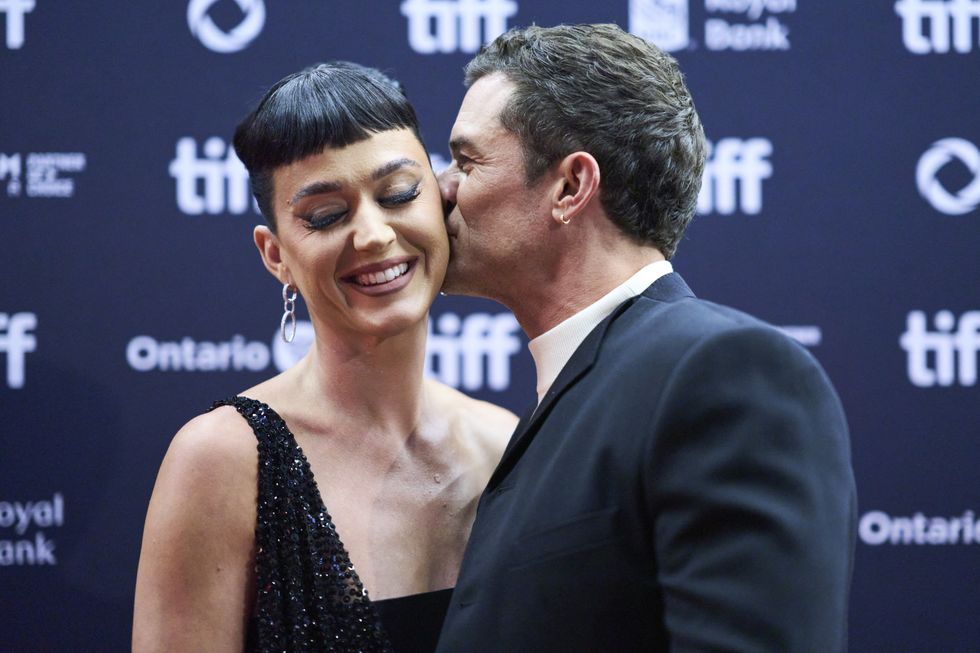 Katy Perry Orlando Bloom Choose Co Parenting Future After Nine YearsGetty Images
Katy Perry Orlando Bloom Choose Co Parenting Future After Nine YearsGetty Images  Katy Perry and Orlando Bloom focus on raising their daughter with love and respect Getty Images
Katy Perry and Orlando Bloom focus on raising their daughter with love and respect Getty Images 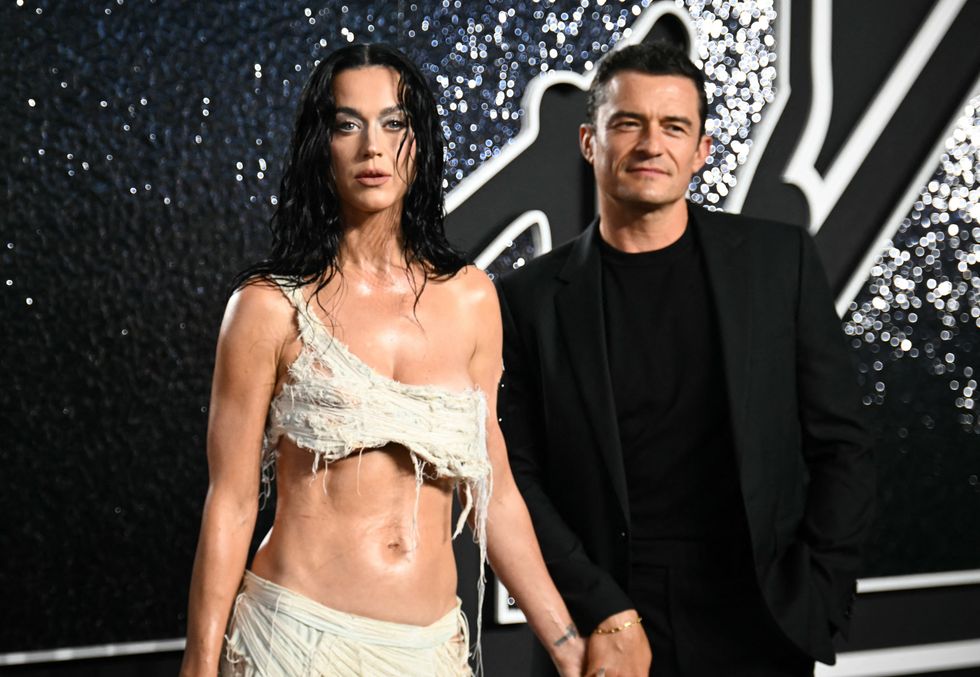 Katy Perry and Orlando Bloom end their long running romance and plan to raise their daughter together as a family
Katy Perry and Orlando Bloom end their long running romance and plan to raise their daughter together as a family

 Priyanka Chopra calls 'SSMB29' her homecoming as she reunites with Indian cinemaGetty Images
Priyanka Chopra calls 'SSMB29' her homecoming as she reunites with Indian cinemaGetty Images  Priyanka Chopra teams up with SS Rajamouli and Mahesh Babu for mega film SSMB29Getty Images
Priyanka Chopra teams up with SS Rajamouli and Mahesh Babu for mega film SSMB29Getty Images 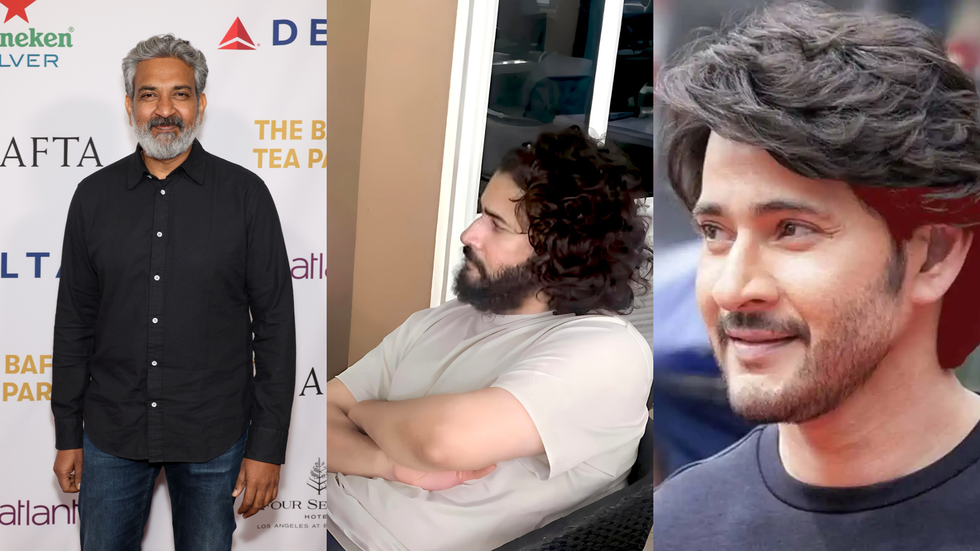 Mahesh Babu’s dramatic new look for SSMB 29 sparks a social media frenzy as fans compare him to Mufasa and a Hollywood action hero Getty Images/ Twitter
Mahesh Babu’s dramatic new look for SSMB 29 sparks a social media frenzy as fans compare him to Mufasa and a Hollywood action hero Getty Images/ Twitter 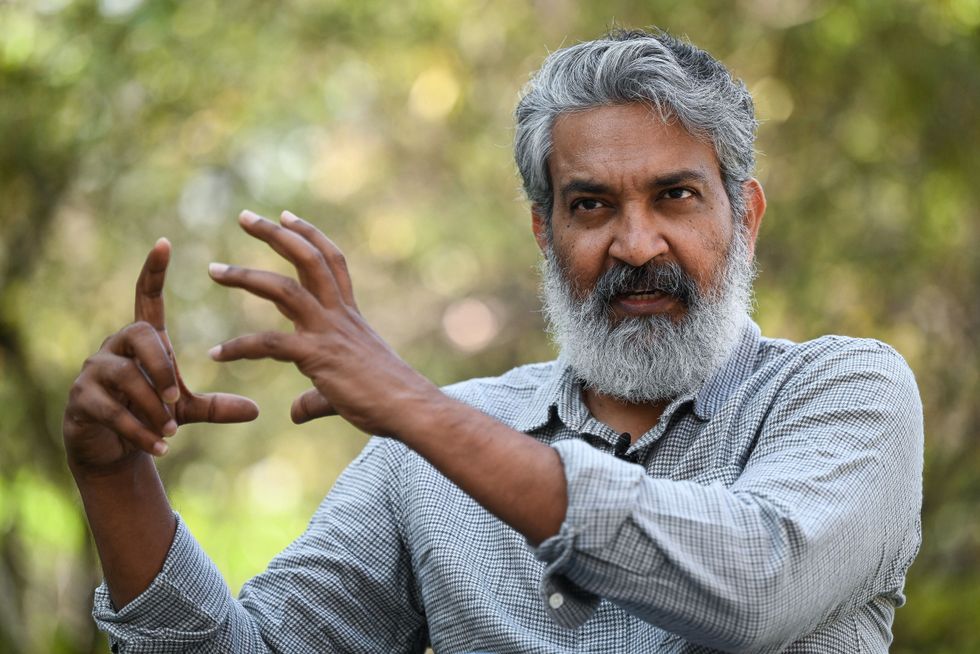 SS Rajamouli recreates Varanasi at Ramoji Film City for a key action sequence in SSMB29 Getty Images
SS Rajamouli recreates Varanasi at Ramoji Film City for a key action sequence in SSMB29 Getty Images